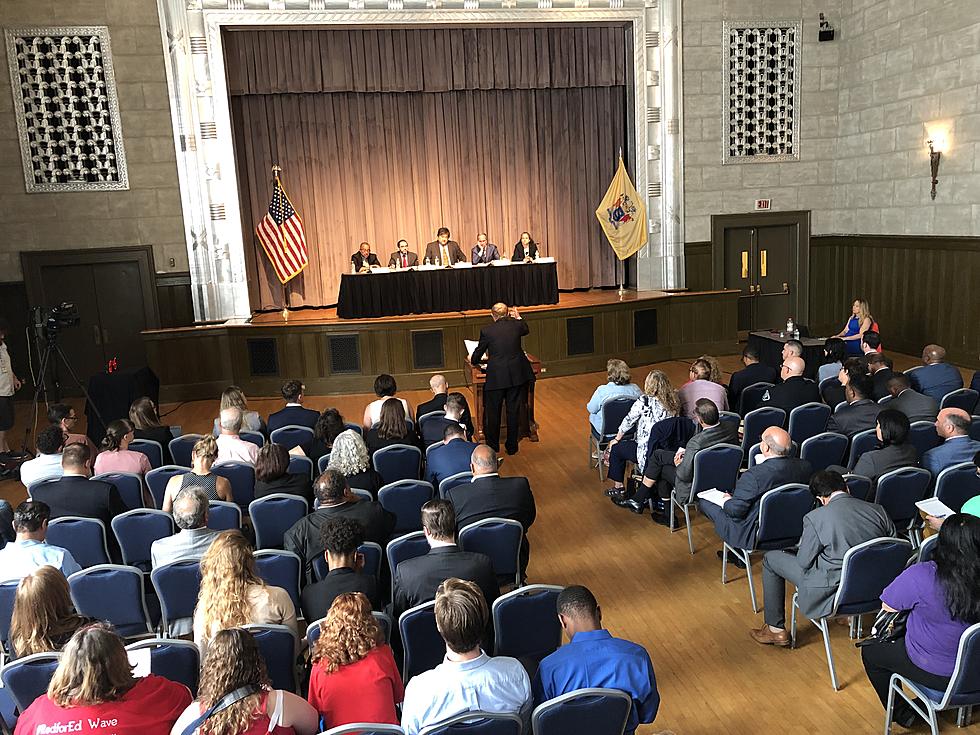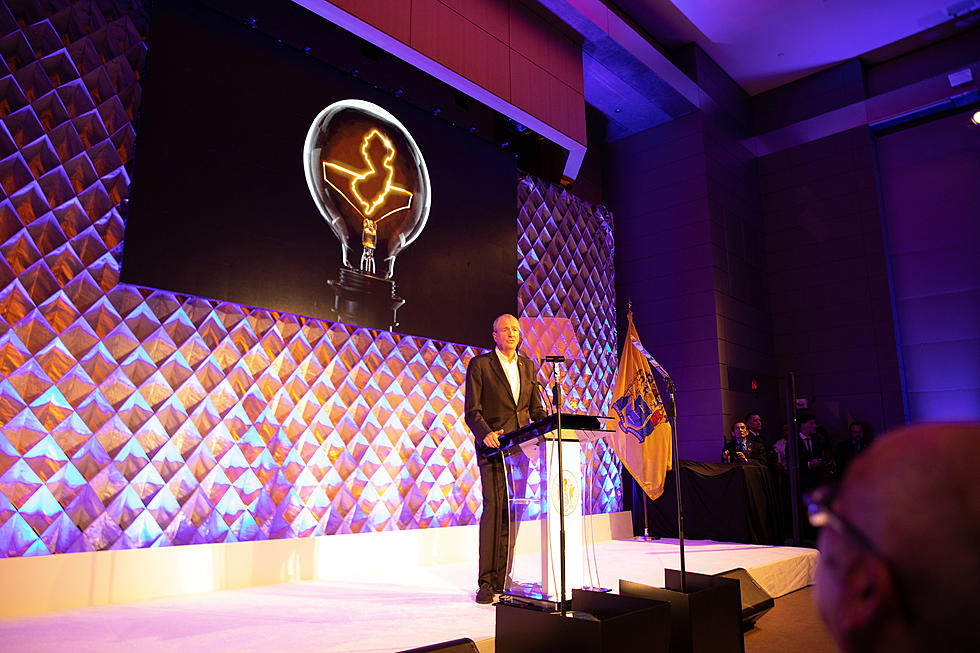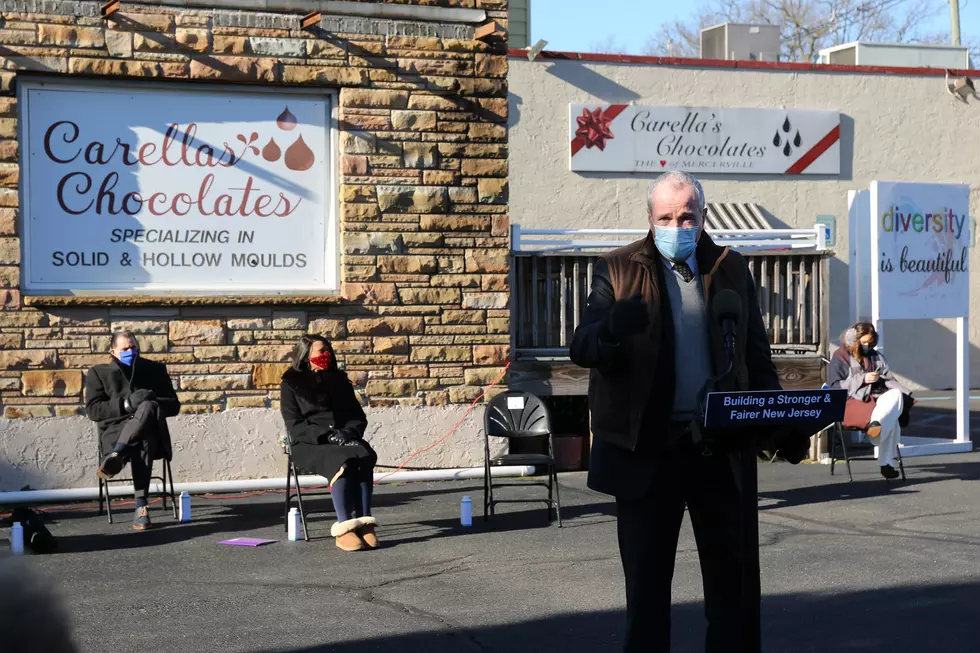
Tax breaks divide: Camden on trial? Or a fiscal crime scene?
Members of the public finally got to chime in officially Tuesday before a gubernatorial task force investigating New Jersey’s corporate tax incentives.
The five-plus hours of testimony, like the programs themselves and the controversy that has ensued, focused primarily on Camden. Backers of the tax breaks say the task force has put Camden revitalization on trial, while the system’s critics urged it to identify suspects behind New Jersey’s fiscal crime scene.
Camden Mayor Frank Moran says the task force should expose what it’s going to expose – but that its efforts have left his city’s economic growth at a standstill.
“Do your due diligence. Come up with your recommendations. But we still need help. My city is still suffering,” Moran said.
The task force heard from roughly 40 people, divided almost equally between tax-incentive program opponents who dominated the morning session and backers who were heard in the afternoon. Some Camden residents spoke for, others against.
“What’s been done to the residents of the city of Camden, it isn’t just unethical, it isn’t just immoral, it’s downright criminal,” said Amir Khan, a pastor, activist and director of Camden We Choose.
Task force special counsel Jim Walden says marketing materials promoting the 2013 law promised tax breaks over 10 years equal to more than the value of the capital investment.
“So literally the tax incentive program would give a developer or a company a free building at the end of it. Do you think that that’s necessary even in places like Camden in order to bring people there?” Walden said.
Yes, says Camden County Freeholder Jeffrey Nash, so long as the state ensures job targets are reached every year.
“Because no one was coming to Camden. And I know. We’ve tried, from Florio to Christie. No one was coming to the city. And that’s what it took,” Nash said.
“There is no marketing that could compel national or international companies to come into Camden,” Nash said. “The Amazons of the world, looking for a headquarters, was looking, and the state of New Jersey said, ‘Don’t go to Camden, go to Newark, and we’ll give you $7 billion to do that.’ Companies weren’t coming to Camden for the ambiance. So they had to do something different.”
That something different was the Economic Opportunity Act of 2013, through which the state awarded $8 billion in corporate tax breaks, on top of $3 billion that had been awarded in earlier tax-credit incarnations. Rutgers University associate professor Julia Sass Rubin said the programs have had many problems.
“As both an academic who studies economic development and as a New Jersey taxpayer, I am appalled that our state has committed $11 billion to such an overpriced, inefficient, ineffective and opaque endeavor,” Sass Rubin said.
The programs expired July 1. Lawmakers approved a seven-month extension that Gov. Phil Murphy refuses to sign. The governor proposed an economic plan last October that includes $400 million a year in targeted tax incentives, but the Legislature has not held a hearing on the proposals.
Former state Sen. Ray Lesniak, D-Union, said Murphy is wrong in his criticism of the $11 billion in tax incentives and that making the tax incentives debate political is fraught with danger to the state’s economic health.
“The longer New Jersey is without tax incentives, our residents will be deprived of employment opportunities and our business climate will suffer,” Lesniak said.
The state Economic Development Authority continues to process tax incentive applications it received before the most recent programs expired.
Walden, the task force attorney, said the EDA for a long time didn’t adequately scrutinize applications, instead presuming that businesses were telling the truth rather than verifying their claims through independent research.
Walden revealed that the task force recently obtained a partially redacted inspector’s general report that alleges that Holtec International, which was awarded $260 million to move to Camden in 2014, had paid more than $54,000 in what Walden likened to a bribe to a Tennessee Valley Authority employee to maintain a contract it held with an Alabama nuclear plant.
A manager at the plant pleaded guilty to federal charges in connection to the payments. Holtec was disbarred for 60 days and paid a $2 million fine – but didn’t disclose that to the EDA is seeking the New Jersey tax credits. Walden said it may have been material to the EDA’s decision on whether to award the tax credits, which are currently on hold while the matter is investigated.
Holtec denied making the payments to the manager, Walden said, quoting the inspector general’s report.
New Jersey: Decoded cuts through the cruft and gets to what matters in New Jersey news and politics. Follow on Facebook and Twitter.
Michael Symons is State House bureau chief for New Jersey 101.5 and the editor of New Jersey: Decoded. Follow @NJDecoded on Twitter and Facebook. Contact him at michael.symons@townsquaremedia.com
More From New Jersey 101.5 FM









